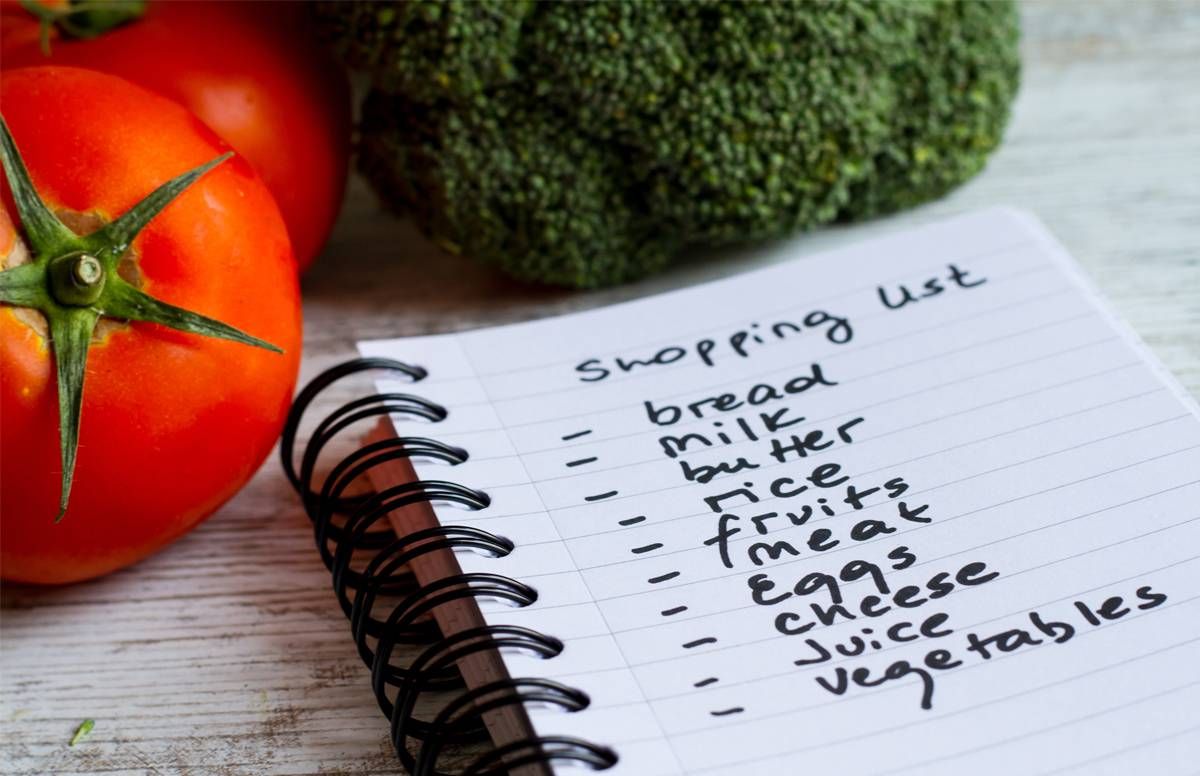Psyching Yourself Up to Run Errands in the Pandemic
Why the number of people Googling 'panic attacks' reached a 16-year high
Mask? Check. Sanitizer? Check. Lists? Check. Persuade myself that I can run errands and get back quickly and safely? Well, maybe I’ll just do them tomorrow. Repeat.

Because I work from home, I used to love grocery shopping or running most errands. They got me out of the house but, honestly, this pandemic changed that. It’s changed a lot of things really.
For me, running errands has now become a process that might literally take days to complete. I take a long time planning, thinking and rethinking everything I need and listing the stores I need to visit.
Then, I typically put it all off for another day.
When I finally do make it out, I am fueled with anxiety and I’m mentally and physically exhausted when I get home. It took one Facebook post about what I was going through to find out that I wasn’t alone.
"The simplest things just take a lot of energy to do. So the anxiety is always there."
“I literally have to psych myself up to run errands,” said Jackie Dishner, 56, of Phoenix. “I know I have to go to the store, and I make a grocery list and say that I would go on Monday, but I would never be able to. I was too stressed out, was giving myself a stomach ache and mild headaches and I'd have to do breathing exercises.”
It would take about three days from the time Dishner started thinking about her errands until she made it out the front door. And even then, her anxiety didn’t stop.
“The whole time I'd be in the store out of breath, nervous and anxious and just wanting to get all my stuff and get out of there,” she said.
After Dishner returns home anxious and tired from her errands, she says, the next few days are just as nerve-wracking.
“You can't help but think for the next three or four days that you’re going to have symptoms. So, I have to pay more attention to what's going on in my body, because I don't know where I might pick it up and bring it home,” she said.
More Americans Seeking Information About Panic Attacks
“People are having a hard time doing so many things now, including running errands,” said Shavvonne Walls, a licensed marriage and family therapist in Newport Beach, Calif.

According to a study in the Journal of the American Medical Association (JAMA), the number of Americans who Googled information about panic and anxiety attacks reached a 16-year high this spring.
“It just may be an undercurrent of feeling nervous, or of contracting COVID, but if it’s becoming overwhelming where it’s affecting your daily functioning or sleeping or with your relationships, you might need some help,” said Walls.
Mitria Di Giacomo, a branding and marketing consultant and owner of Nexus Plexus in New York City, used to rent an office in Manhattan. When the quarantine started, she started working remotely and was very careful to follow the protocol by health care experts. But as time progressed and there was no immediate end in sight to the pandemic, she found it more difficult to leave her home, even for essentials.
“I have my days where I’m kind of functioning okay,” said Di Giacomo. “And then the simplest things just take a lot of energy to do. So the anxiety is always there in the back of my head. But what I find more exhausting is a low-grade depression. It’s so much to deal with.”
To help cope, Di Giacomo likes to structure her days with to-do lists for her work and her clients.
Going to the Store Requires 'Prep Time'
Laura Laing, a 52-year-old from Baltimore, was in Vermont at a writer’s residency when the pandemic hit. She came home and started making masks, what she called her own ‘coping mechanism.’
When Laing realized that the quarantine was going to be long-term, she began getting worried about going out. “We’ve looked at ways to not go out, having our milk, meats and vegetables delivered,” she said. “Being this worried was new for me and I kept wondering if I was overthinking it.”
“If you need to take a nap, take one. Recognize that your body feels overwhelmed."
For Laing, going to the store now requires "prep" time.

"I have to go down a list of all the things that I need and make sure that I have everything,” she said. “I have to figure out where I'm going first and make sure I'm hitting everywhere I need to go, so I don't have to go back out. When I’m done, I’m glad to be home and not have to go anywhere for another week.”
To help overcome the anxiety, Walls suggests some self-talk.
“Be aware of what you are telling yourself and what’s realistic,” she said. “During that time that you’re out, be aware of the task at hand and tell yourself whatever it is that's going to encourage you. Know what you have control over, such as washing your hands and taking the necessary precautions.”
Replace Anxious Thoughts With Positive Ones
Virna Little, chief operating officer and co-founder of Concert Health in San Diego, suggests identifying the one thought that makes you most anxious and then replacing it with another.
“So instead of thinking about being around people who might be sick, say that you’re going to wear your mask and use sanitizer. And that will help you to stay well and safe,” said Little.
If shopping is wearing you out once you get home, Wells also suggests having some self-compassion.
“If you need to take a nap, take one,” she said. “Recognize that your body feels overwhelmed and anytime there's so much energy with worry, anxiety or anger, it shuts down and probably wants to sleep.”
Our Commitment to Covering the Coronavirus
We are committed to reliable reporting on the risks of the coronavirus and steps you can take to benefit you, your loved ones and others in your community. Read Next Avenue's Coronavirus Coverage.
If your anxiety is so severe that you can't leave the house, you might be suffering from agoraphobia.

“Agoraphobia is a constant fear that you’re going to have a panic attack if you go out,” said Walls. “It’s much more than anxiety and nervousness. It may not even have anything to do with the virus. It’s that you cannot control what’s going on in the world and you don’t want to be in public in case you have a panic attack.”
Walls recommends medication and seeing a psychotherapist if you are suffering from severe anxiety or agoraphobia. “Some patients with milder anxiety may or may not need medication,” she said.
Dishner has since contracted, and recovered from, COVID-19. “I still have to convince myself to go anywhere and it takes me a few days. But there is less anxiety compared to months ago,” she said.
What’s most important is figuring out what works for you.
For me, I’m still psyching myself up to go shopping. I have decided to order my groceries online to cut down how much time I’m spending inside the store. While shopping isn’t as enjoyable for me right now, I also know that this situation is temporary.
In the meantime, I have found new things to enjoy, including walks in the neighborhood and in local parks that get me out of the house.

